Essayer OR - Gratuit
Buying time for poults to thrive
Shooting Times & Country
|July 05, 2023
As we all know the loss of poults on small shoots can be a real frustration, so protecting against raptor attacks is time well spent, says Liam Bell
-

Losses of released birds to raptors is usually less than 5% of the number of birds put down. There are of course places where it is higher, but in many cases it can be as low as 2% or 3%. But this doesn’t make it any less frustrating when you find kills, especially if you only put a few birds down to start with.
Pheasant poults have usually outgrown sparrowhawks when they get to 10 to 12 weeks of age. They will be too big and streetwise for all but the largest and most determined of buzzards a month later, but sadly never get too big or clever enough to escape the clutches of a goshawk. A goshawk will kill fewer birds as the poults mature — and become more attuned to danger — but they are never really out of harm’s way. A hen goshawk is quite capable of killing an adult cock pheasant. Thankfully, as most kills occur in the first couple of weeks the poults are in the pens, there are things we can do to deter birds of prey and improvements we can make to the habitat within the release pens themselves to reduce both the actual losses and the stress caused to the birds by the raptors that target them.
That said, the biggest single thing you can do to reduce kills in your pens is to release your birds at eight weeks of age instead of the more usual six-and-a-half to seven weeks. They grow a huge amount in that extra week, put on weight and generally just get stronger. Bigger, stronger, sharper poults are more likely to escape the clutches of a bird of prey and less likely to suffer from stress-induced illnesses if they are being harassed.
Cette histoire est tirée de l'édition July 05, 2023 de Shooting Times & Country.
Abonnez-vous à Magzter GOLD pour accéder à des milliers d'histoires premium sélectionnées et à plus de 9 000 magazines et journaux.
Déjà abonné ? Se connecter
PLUS D'HISTOIRES DE Shooting Times & Country
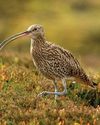
Shooting Times & Country
United we stand
Following United Utilities' decision to end grouse shooting on its land, Lindsay Waddell asks what will happen if we ignore our vital moors
5 mins
August 02, 2023

Shooting Times & Country
Serious matters
An old gamebook prompts a contemplation on punt-gunning
3 mins
August 02, 2023
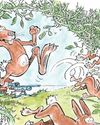
Shooting Times & Country
They're not always as easy as they seem
While coneys of the furry variety don't pose a problem for Blue Zulu, he's left frustrated once again by bolting bunnies of the clay sort
5 mins
August 02, 2023
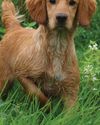
Shooting Times & Country
Debutant gundogs
There's lots to think about when it comes to making the decision about when to introduce your dog to shooting
4 mins
August 02, 2023
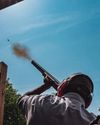
Shooting Times & Country
When the going gets rough
Al Gabriel returns to the West London Shooting School to brush up on his rough shooting technique
5 mins
August 02, 2023

Shooting Times & Country
The Field Guide To British Deer - BDS 60th Anniversary Edition
In this excerpt from the 60th anniversary edition of the BDS's Field Guide To British Deer, Charles Smith-Jones considers the noise they make
4 mins
August 02, 2023
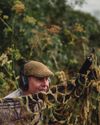
Shooting Times & Country
A step too far?
Simon Garnham wonders whether a new dog, a new gun and two different fields in need of protection might have been asking too much for one afternoon's work
6 mins
August 02, 2023
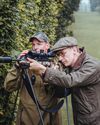
Shooting Times & Country
Two bucks before breakfast
A journey from old South London to rural Hertfordshire to stalk muntjac suggests that the two aren't as far detached as they might seem
6 mins
August 02, 2023
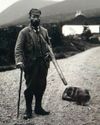
Shooting Times & Country
Stalking Diary
Stalkers can be a sentimental bunch, and they often carry a huge attachment to their hill
2 mins
August 02, 2023

Shooting Times & Country
Gamekeeper
Alan Edwards believes unique, private experiences can help keepers become more competent and passionate custodians of the countryside
3 mins
August 02, 2023
Translate
Change font size

